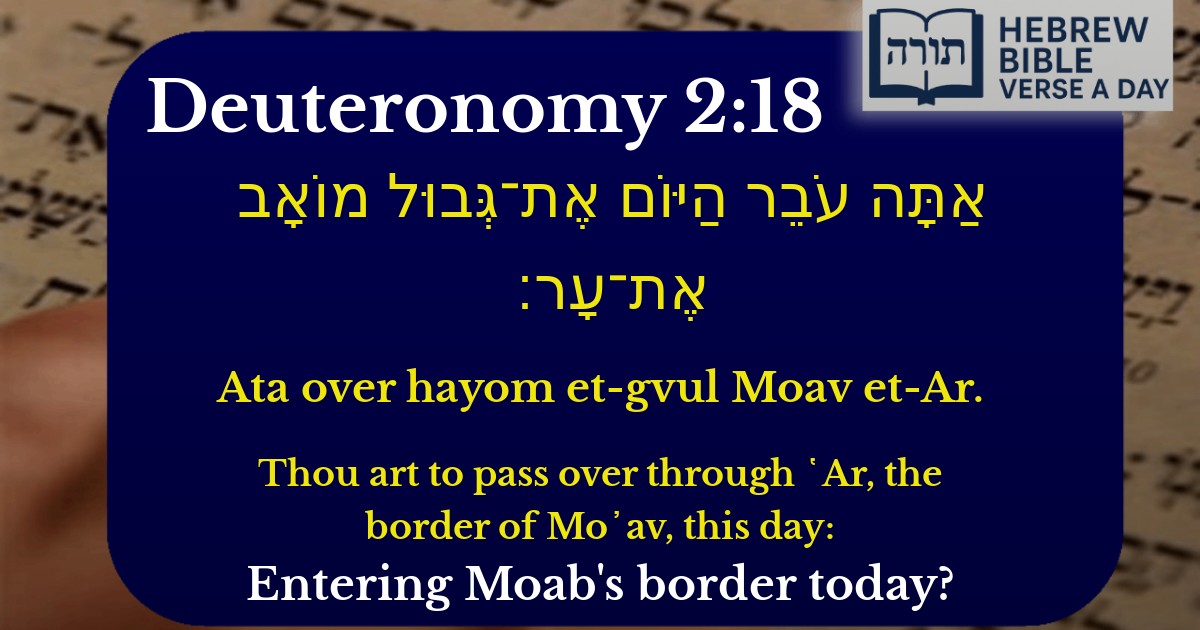Join Our Newsletter To Be Informed When New Videos Are Posted
Join the thousands of fellow Studends who rely on our videos to learn how to read the bible in Hebrew for free!
Hebrew Text
אַתָּה עֹבֵר הַיּוֹם אֶת־גְּבוּל מוֹאָב אֶת־עָר׃
English Translation
Thou art to pass over through ῾Ar, the border of Mo᾽av, this day:
Transliteration
Ata over hayom et-gvul Moav et-Ar.
Hebrew Leining Text
אַתָּ֨ה עֹבֵ֥ר הַיּ֛וֹם אֶת־גְּב֥וּל מוֹאָ֖ב אֶת־עָֽר׃
אַתָּ֨ה עֹבֵ֥ר הַיּ֛וֹם אֶת־גְּב֥וּל מוֹאָ֖ב אֶת־עָֽר׃
🎵 Listen to leining
Parasha Commentary
📚 Talmud Citations
This verse is not quoted in the Talmud.


Context in Devarim (Deuteronomy) 2:18
The verse appears in Moshe's recounting of Bnei Yisrael's journey through the wilderness, specifically as they approach the territory of Moav. This marks a transitional moment in their travels, as they prepare to enter Eretz Yisrael.
Rashi's Commentary
Rashi (Devarim 2:18) explains that "היום" ("this day") emphasizes the immediacy of the command—Bnei Yisrael were to cross the border of Moav on that very day. This reflects Hashem's precise timing in guiding their journey. Rashi also notes that "Ar" refers to a prominent Moabite city, indicating a specific geographic marker in their travels.
Ibn Ezra's Insight
Ibn Ezra highlights that this verse underscores the distinction between Moav and other nations. Unlike Amon, whom Hashem forbade them from conquering (Devarim 2:19), Moav's territory was to be traversed but not seized—a nuanced boundary set by Divine decree.
Midrashic Interpretation
Halachic Implications
The Rambam (Hilchot Melachim 5:1) derives from this and related verses that certain lands, like Moav, were prohibited for conquest even though they were not part of the seven Canaanite nations. This reflects the nuanced halachic boundaries established by the Torah regarding warfare and territory.